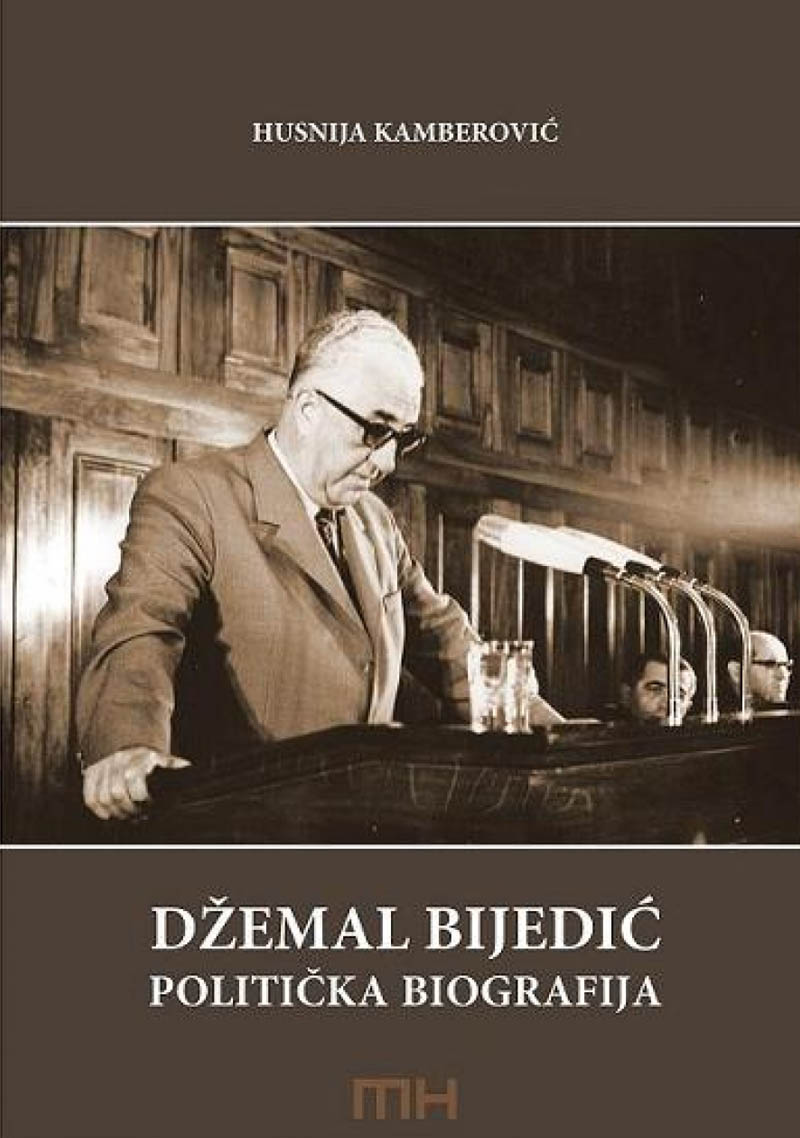
- Home
- Departments
- Old Photos
- Publishing
- Education
- About
- Activities
- Contact


- History Department
- Literature Department
- The Old Bridge Museum
- The MuM Interpretation Center
- Archaeorology Department


Džemal Bijedić was born in Mostar in 1917 and died near Kreševo in a plane crash on January 18, 1977. In almost 60 years of his life, he had a long political career. As a law student at the University of Belgrade, he was inspired by leftist ideas, which later determined his entire life. During the Second World War, he actively participated in the anti-fascist movement, and after the war, he focused his political activity on four key issues: the development of Herzegovina and its integration into the framework of Bosnia and Herzegovina; the equality of Bosnia and Herzegovina in the Yugoslav federation; the affirmation of the Muslim national identity and the affirmation of the Yugoslav state on the world political scene, on which he worked especially actively since 1971, when he became the president of the Federal Executive Council.
Bijedic’s political career is truly fascinating.
In 1960, he entered the Federal Government for the first time, and from 1963 to 1971 he was for a time the president of the Republic Council of the Assembly of Bosnia and Herzegovina, and then the president of the Assembly of Bosnia and Herzegovina. Since 1971, he served as the president of the Federal Executive Council for two terms.
There are three key fields in which Bijedic led his political action in the mid-1960s. Bosnia and Herzegovina started the process of integration of its regions in that time in order to become stable enough on its own. This was carried out through the integration of western Herzegovina into the Bosnian-Herzegovinian framework by opening the process of removing the Ustaste mortgage from that region with the aim of integrating Croats from western Herzegovina into the new social reality. The second thing that Bijedic worked on was the national affirmation of Muslims. At the time when there were big debates about it, he was the president of the Assembly of Bosnia and Herzegovina and from that position had a strong influence on the whole process.
When Bijedić received the mandate to form the federal government, the political circumstances in Yugoslavia were very tense among certain republican elites. Bijedic focused his attention on stabilizing the political situation, but mostly dealt with economic issues. At the beginning of his mandate, the high cost of living, inflation, the growth of the country’s debt and frequent devaluations of the domestic currency were Ribicic’s legacy, which Bijedić had to deal with. During the Bijedić Government, although there was constant talk of a crisis, Yugoslavia was still an economically stable country. In 1976, the last year of Bijedić’s government, Yugoslavia ended with a wage surplus of 330 million dollars, foreign exchange reserves of nearly 3 billion dollars, a growth rate of industrial production of 3 percent, and so on. At that time, the Yugoslav dinar was the only currency from the communist world that was close to convertibility on the Western money market.
As a president of the Federal Executive Council, Bijedić dealt with foreign policy issues more than any other prime minister, except for Josip Broz Tito. However, he was not the key creator or idea creator of Yugoslav foreign policy, because that field was reserved exclusively for the head of state, i.e. Josip Broz Tito, but he was a very important person in whom Tito had great confidence and who often followed Tito’s ideas and cleared the paths that he himself then followed. Bijedic took authoritative positions in the field of foreign policy, regardless of the fact that some, even in his government, did not always agree with this. During his mandate, Bijedic visited a large number of countries, including the world’s greatest powers: the United States of America, the Soviet Union and China. He was particularly active in contacts with non-aligned countries and countries of the Near and Middle East.
For a long time, there have been doubts about the causes of the plane crash and the death of Džemal Bijedić. Conspiracy theories, which are built around Bijedić’s death, will always exist and have their supporters. It is indisputable that Bijedic had an opponent, and that this fact was later emphasized as an argument for the existence of a conspiracy. However, “the official findings of the special Commission formed to investigate the cause of death showed that it was a human factor”. After all, it’s all about the people!